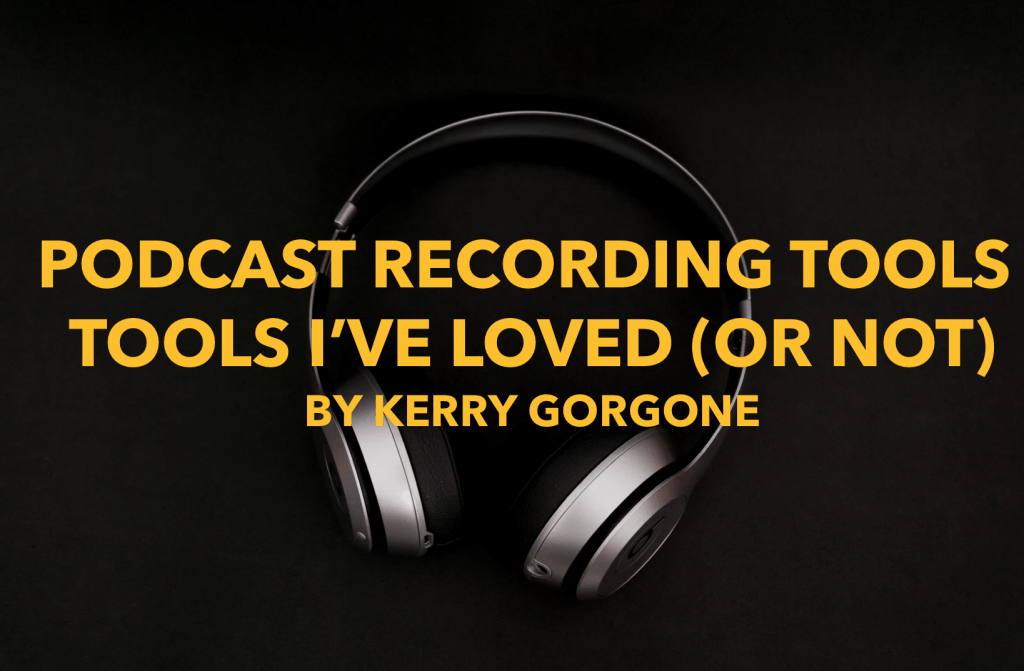
By Kerry Gorgone, {grow} Contributing Columnist
I can’t believe this is happening: I’m talking with Alan Alda on Skype for the MarketingProfs podcast! Like many people, I know Alda from his work on shows like “M*A*S*H,” “The West Wing,” and “Blacklist,” but he’s had a rich career in communication coaching in addition to his work acting and producing. I’m excited to talk about how he’s used improv to help scientists, doctors, and even autistic teens to communicate more effectively.
Unfortunately, he sounds awful—like he’s speaking to me from the bottom of an empty swimming pool. Alda’s agent’s booked us 30 minutes to record an interview about his book If I Understood You, Would I Have This Look on My Face? and ironically, we can’t communicate (at least not over Skype).
After going through his settings for 10 minutes, we give up and Alda graciously agrees to let me call him on the phone instead. The resulting call turns out to be of the most fascinating conversations I’ve ever had. (You can check out the resulting interview here.)
As soon I hung up the phone (and hit save—I wasn’t about to lose that audio), I started researching. I needed a simple podcast recording tool for online interviews that would make the recording process painless for guests and yield a great quality file. Here’s a chronicle of my adventures trying different podcast recording tools, and the results I obtained.
Zencastr
“The easiest way to record your VOIP podcast interviews in studio quality.”
Platforms: Mac OS 10.10 or higher, Windows 8.1 or higher, no mobile app
Price: Plans range from free (“Hobbyist”) to $250/month (“Network”)
The good: At first blush, Zencastr has everything. An easy, click-to-join invite system, multi-track recording, automatic post-production, a soundboard so you can add your intro or a sponsor spot while recording (so you don’t have to splice them in later), and great audio quality.
For the first time, I have an easy way to let PR people listen in on the interview. (I’ve had to say “no speakerphone” enough to disappoint an entire generation of PR and communications people by now.) Rendered audio files sound fantastic, and I use Zencastr for months, recommending it to others.
The bad: And then things start to unravel. Guests encounter problems—they can’t hear me, or I can’t hear them. It might be user error, but troubleshooting via chat and phone doesn’t resolve it. This doesn’t happen every time, but it happens often enough to give me pause about Zencastr being a long-term solution.
Finally, Zencastr glitches during a recording and dumps the guest’s audio. Fortunately, I was running Camtasia and recording system audio as a back-up, so I have our interview, but that could have been very inconvenient. I decide to keep looking.
Zoom
“Zoom is the leader in modern enterprise video communications, with an easy, reliable cloud platform for video and audio conferencing, chat, and webinars across mobile, desktop, and room systems.”
Platforms: iOS and Android
Price: Plans range from free to $19.99/month
The good: Many people I know use Zoom for podcast interviews. I can see why. It’s easy to use, you can have as many guests on at once as you want (the free plan allows up to 100 to join the call), and the connection quality is excellent.
The bad: it doesn’t record the interviews, so I wind up running Camtasia in the background, and our audio’s mingled onto a single track. For those who haven’t used it, Camtasia software from TechSmith for recording video presentations, screencasts, and other kinds of content, but it also works for audio)
I can capture my audio directly in Camtasia separately, so this isn’t a huge issue, but Zoom is definitely a conference tool as opposed to a recording tool. I also don’t need video often, since the podcast is audio only. Zoom isn’t a perfect fit. Back to the drawing board.
Ringr
“A smart phone app that records a conversation on each side, uploads both files to the cloud, then syncs them for a perfect audio recording without any of the glitches long distance audio and video calls are known for.”
Platforms: Desktop, iOS, and Android
Price: Plans range from $7.99/month to $18.99/month
At first, I don’t try Ringr as one of my podcast recording tools because it doesn’t enable multiple guests, the way Zencastr and Zoom do. But Ringr eventually adds the conferencing feature, so I give it a try. I like it!
The good: Connecting is incredibly easy for guests. They receive an email, click a link to join the call, and Ringr prompts them to select their mic upon joining. That’s it! No messy settings to fix.
Sound quality is excellent, as well, with a separate track for every participant. I can even use settings to choose which type of audio files Ringr should render for me once the call ends.
The bad: USB headsets and mics work fine, but headsets that plug into the audio jack don’t. Since some guests plug in whatever headset they have into whatever port fits, I still do some troubleshooting via phone.
Another problem with Ringr is that there’s no text chat function. If a guest logs in but I can’t hear him or her, I have to talk and say that I’m going to email them or call them, or ask them to call me, because we can’t troubleshoot via chat. A chat functionality (which Zencastr and Zoom both have), would make this far and away the best solution.
Finally, PR folks who like to join the interview call and listen in are often hesitant to give me the interviewee’s direct email address. A PR person will want me to send the Ringr invitation to him, with the assurance that he will forward it along as appropriate.
The problem is this: each invitation is exclusive to the person you send it to, which means multiple people can’t use the same invite. Ergo, once the PR person clicks the link (which they inevitably do), the actual guest can’t use it to access to Ringr call.
Compounding this problem is that fact that I can’t edit a scheduled Ringr call to add another participant, which means that once the guest is locked out by the PR person, I can’t issue them their own invite on the spot to that same call. As a result, I’ve had to create a new Ringr call on the fly more than once.
Skype
“A telecommunications application software product that specializes in providing video chat and voice calls between computers, tablets, mobile devices, the Xbox One console, and smartwatches via the Internet and to regular telephones”
Platforms: Mac OS X, Windows, Linux, iOS, and Android
Price: Monthly plans range from $2.99/month to $13.99/month, and there are pay-as-you-go options.
You never forget your first VoIP solution, and Skype was mine. It’s also my back-up in the event troubleshooting a different option doesn’t work.
The good: Everyone knows what Skype is and most people have an account.
The bad: Skype preferences don’t automatically align to your general system settings, so it’s possible to have a USB mic plugged in and still be pulling audio from your computer’s built-in mic (which sounds echoey and awful).
Skype calls also tend to include some drops and distortions, although far less than I experienced early on. Occasionally, a call will even drop, although this too is relatively rare.
The upshot: When Ringr works, it’s great, so I’m hanging in there with it, giving booking agents and PR people clear instructions and insisting that I get a direct email address for the guest himself or herself.
Skype is now my last resort. If I encounter any problems with Ringr, it’s easy and fast to create a Zoom call and invite all necessary people.
Eventually, I might even switch to Zoom and turn on video as a matter of course. As Alan Alda told me that fateful day, “there are all of these involuntary muscles in the face that are telling you what the other person is feeling and thinking: if you’re not reading them…you’re not getting the picture.”
Literally and figuratively, Zoom would give me the picture of what guests are feeling and thinking, which could work out well, provided their internet connection holds up.
I hope my experiences have saved you a little time! Which solution ultimately works for you will depend on your own standards and the tech savviness of any guests you interview.
What should I try next? What podcast recording tools do you love?

Kerry O’Shea Gorgone is a writer, lawyer, speaker and educator. She’s also Director of Product Strategy, Training, at MarketingProfs. Kerry hosts the weekly Marketing Smarts podcast. Find Kerry on Twitter.
Illustration courtesy Unsplash.com


